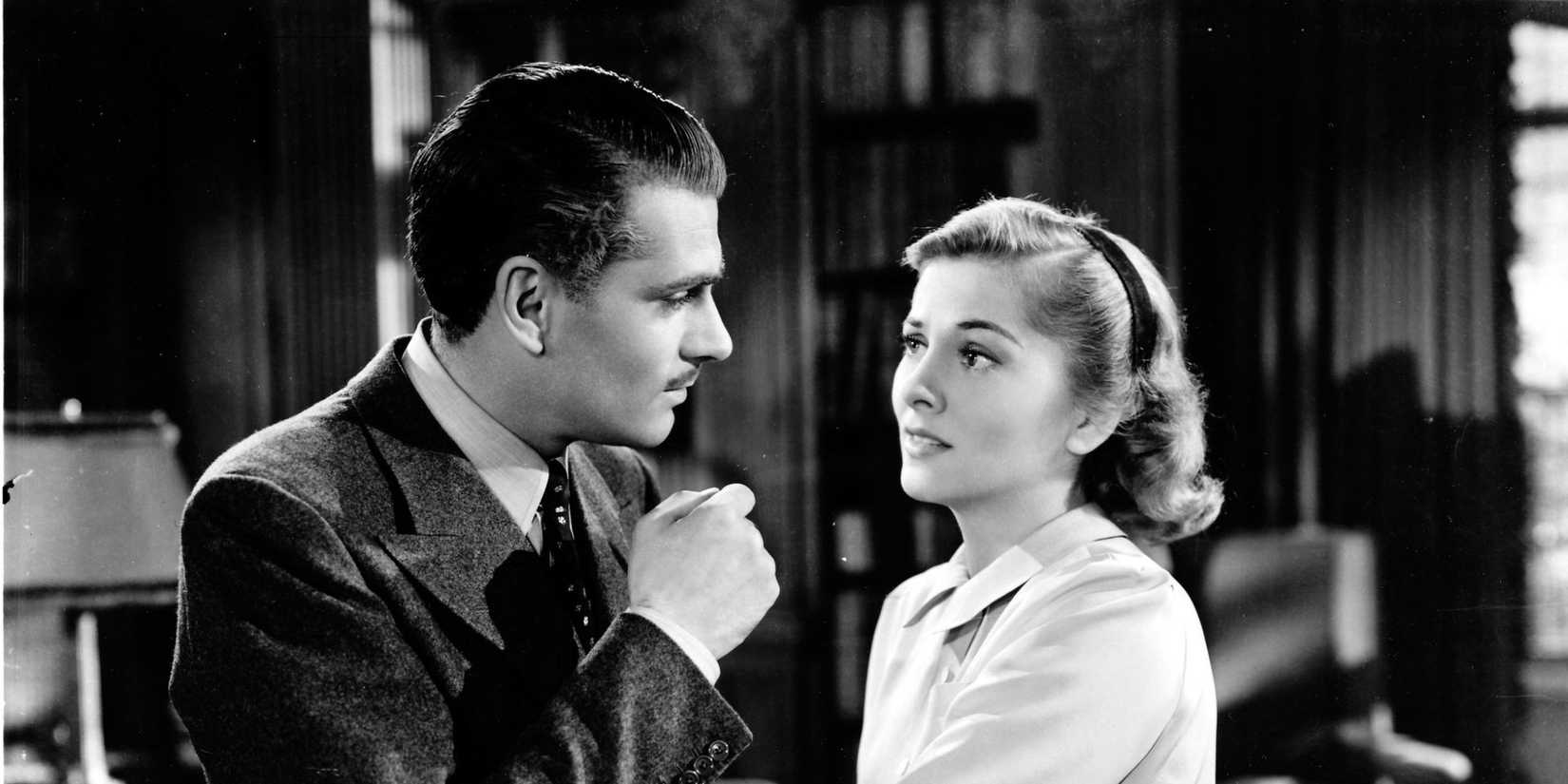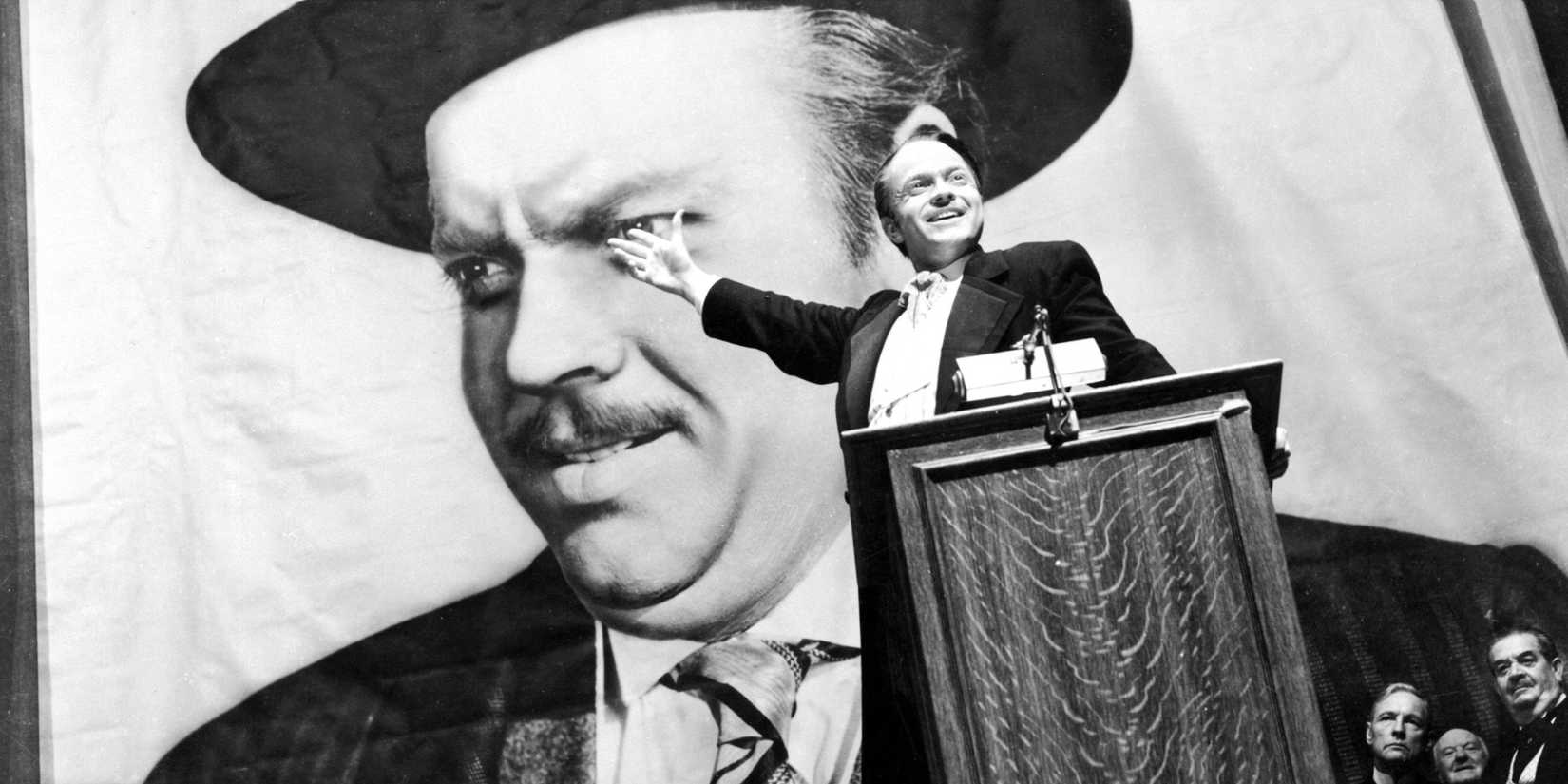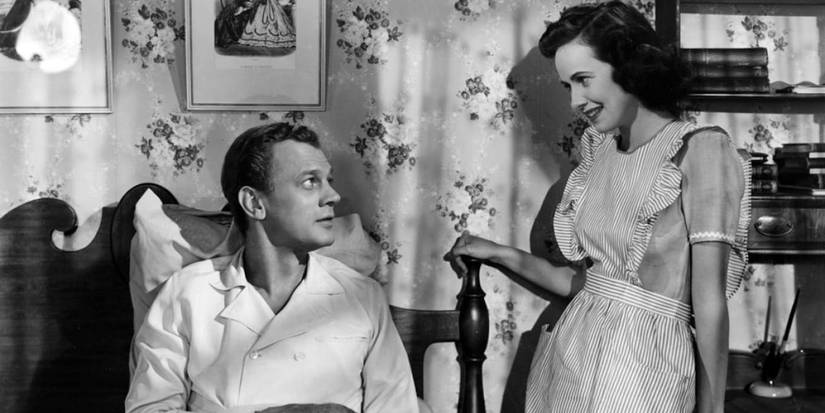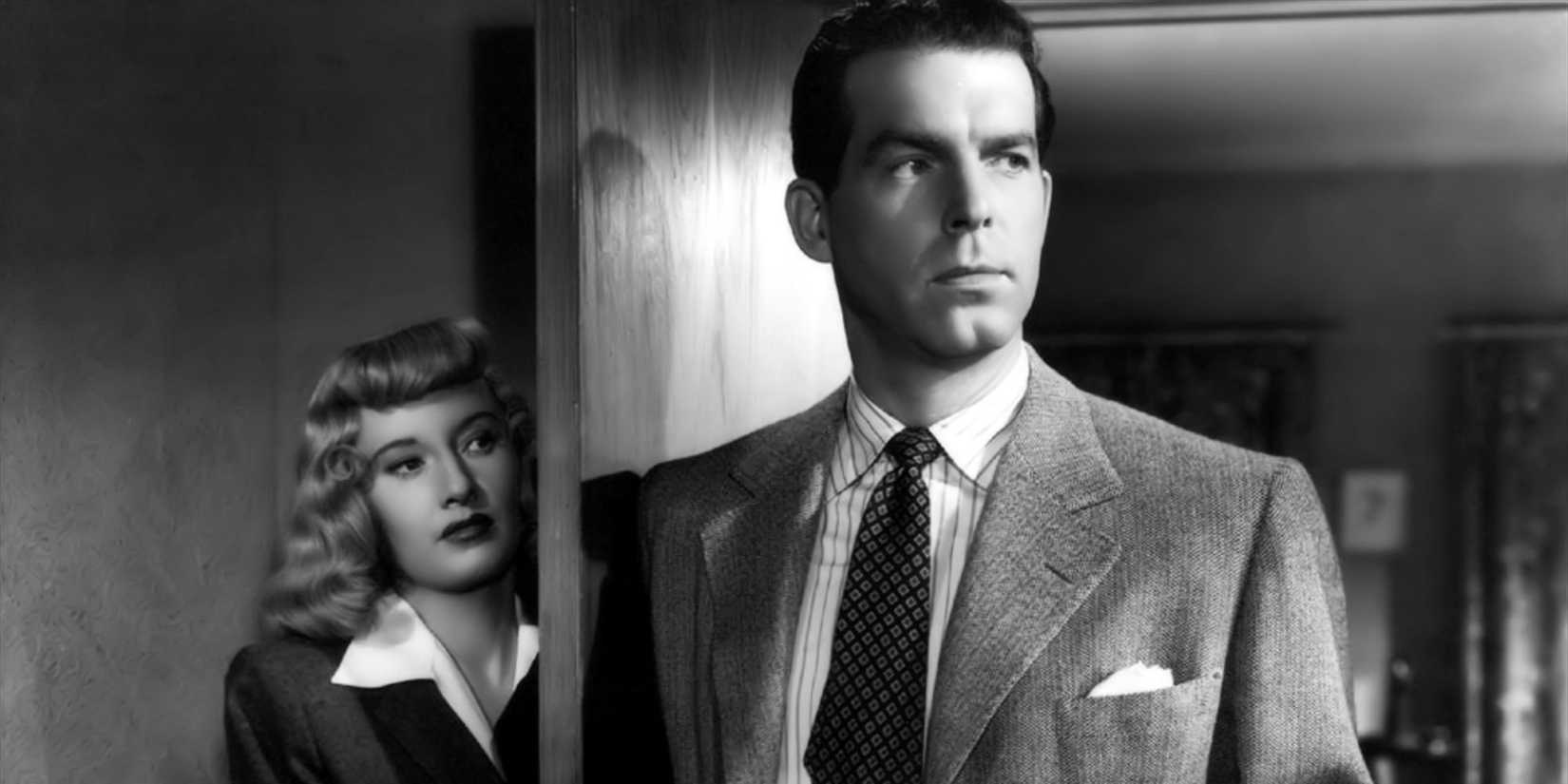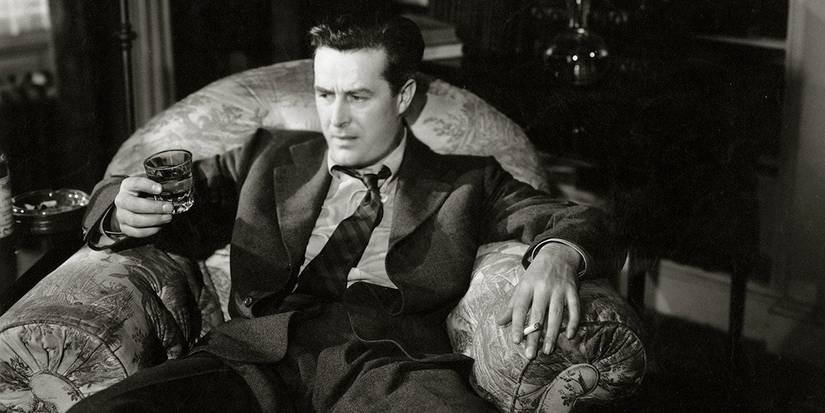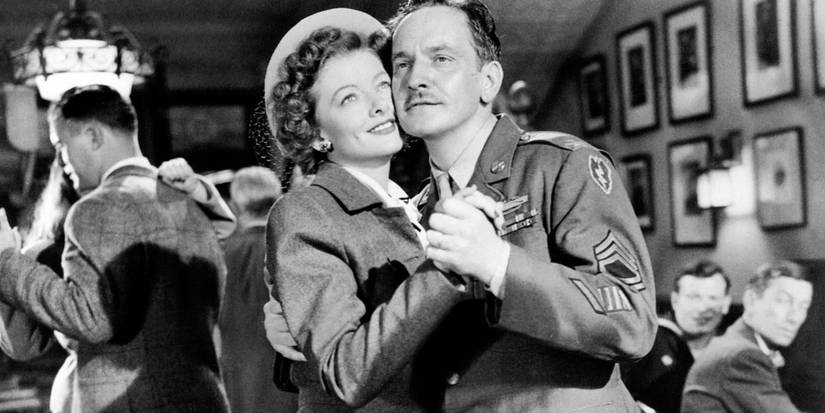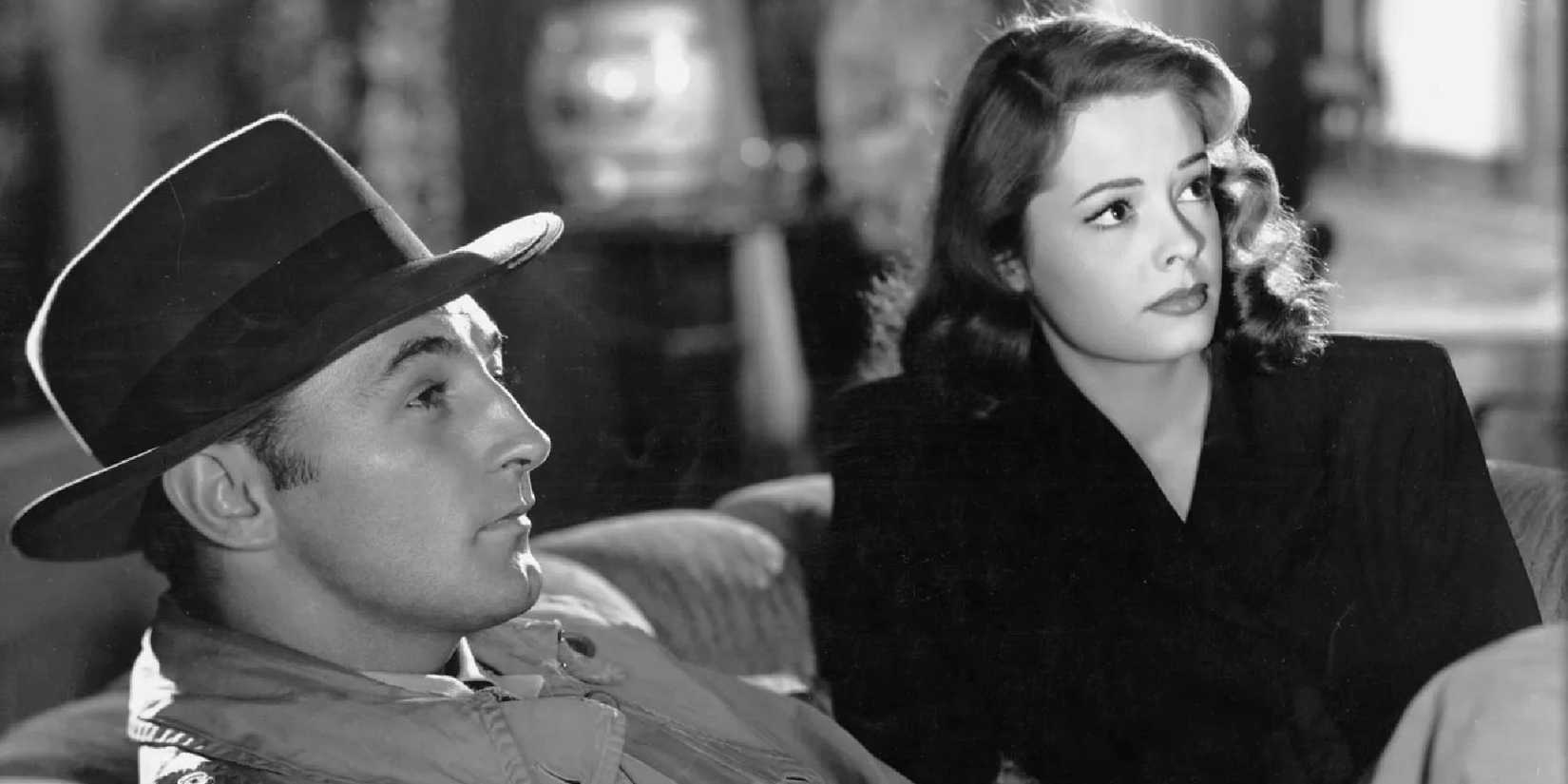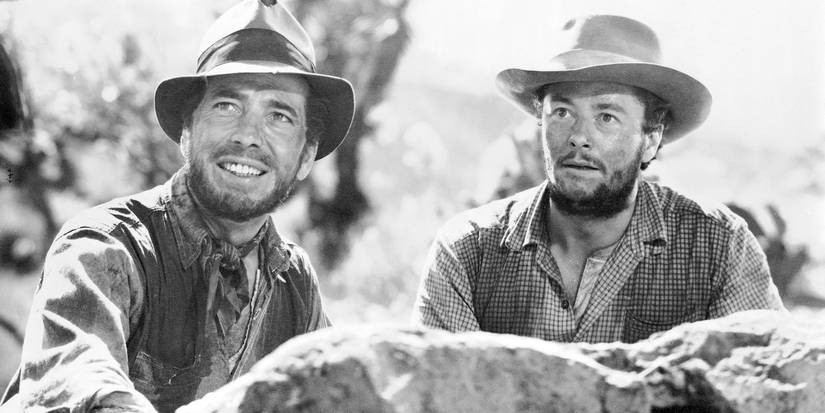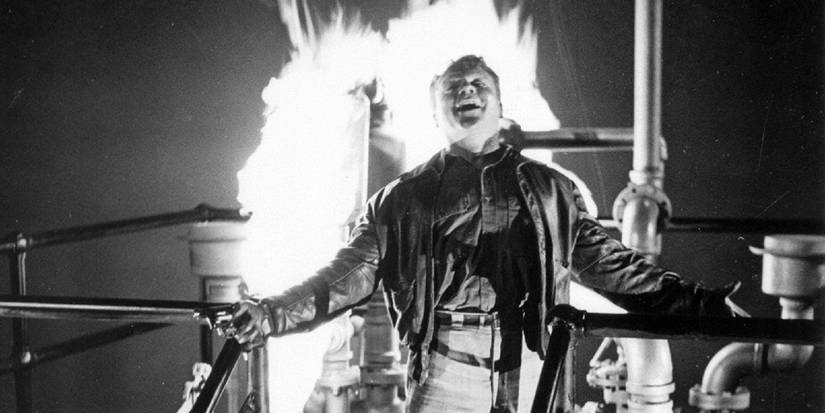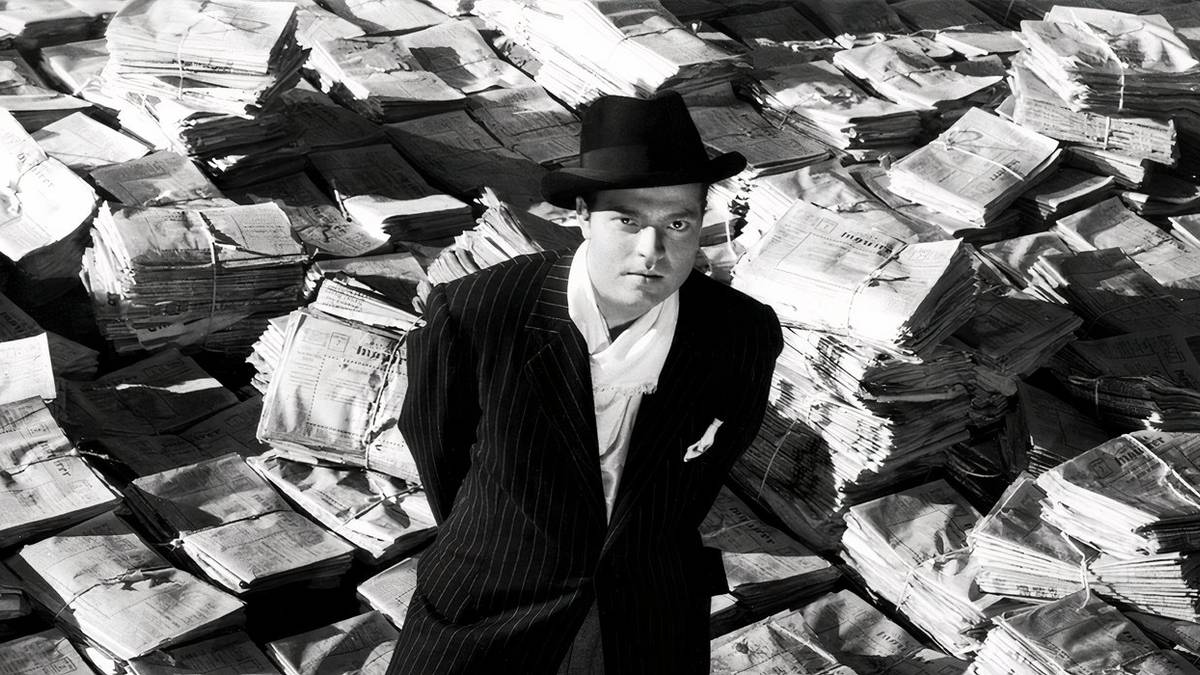
The Greatest Movie of Every Year of the 1940s
Hollywood’s Golden Age was a defining era in American cinema that sparked a creative revolution and led to the release of some of the most iconic and influential films in movie history. Even though the Golden Age spanned from the 1920s to the early 1960s, the 1940s were a prolific decade that witnessed the arrival of groundbreaking classics, including Citizen Kane, Casablanca, and The Best Years of Our Lives, which ultimately elevated the art and craft of film to new heights of imagination.
Throughout the 1940s, dozens of notable films graced the silver screen, but popular hits such as The Treasure of the Sierra Madre starring Humphrey Bogart, Alfred Hitchcock‘s Shadow of a Doubt, and the signature film noir classic, Out of the Past, starring Robert Mitchum, Jane Greer, and Kirk Douglas, undeniably dominated their release year. From the Oscar-winning psychological thriller, Rebecca, to one of the greatest gangster movies of all time, White Heat, starring James Cagney, these are the best movies of every year of the 1940s.
10
‘Rebecca’ (1940)
Joan Fontaine stars in the romantic psychological thriller, Rebecca, as a young woman who is swept off her feet by a handsome and wealthy widower, Maxim de Winter (Laurence Olivier), resulting in a whirlwind romance and eventually marriage. When de Winter brings his new bride home to his seaside manor known as Manderley, she tries to find out what happened to the former Mrs. de Winter, and the more she learns, the more she starts to believe that her new husband may have been involved in his first wife’s untimely demise.
Alfred Hitchcock made his American film debut with Rebecca, which is an adaptation of the 1938 novel of the same name written by Daphne du Maurier, and is regarded as one of the best movies of the 1940s. Audiences are effortlessly lured into the film’s puzzling mystery by its slew of enigmatic characters and an atmosphere of unsettling suspense and curiosity, which essentially revolutionized the psychological thriller. Rebecca was a monumental success and earned eleven Academy Award nominations, including Best Director, Best Actor, and Best Actress, and went on to win two Oscars for Best Picture and Best Black – White Cinematography.
9
‘Citizen Kane’ (1941)
Orson Welles made his feature film and directorial debut in the signature classic, Citizen Kane, as a media tycoon, Charles Foster Kane, whose final puzzling words, “Rosebud”, lead a young reporter (William Alland) on a search to find out the meaning behind the man’s cryptic last words. As the reporter interviews some of Kane’s former associates and colleagues, Kane’s grand public image begins to unravel, eventually revealing a man who, despite his immense wealth and notoriety, lived a life of loneliness and utter disappointment.
Citizen Kane is considered by many to be one of the greatest movies of all time, renowned for its innovative cinematography by Gregg Toland, its unique narrative structure, and, of course, the controversy involving real-life media baron William Randolph Hearst, whose partial inspiration for the film and Welles’ character has since become a legend in Hollywood lore. Despite Hearst’s extensive efforts to sabotage the film, Citizen Kane was still a triumphant success and received nine Academy Award nominations, notably for Best Picture, Best Director, and Best Actor, and went on to win the Oscar for Best Original Screenplay for Welles and Herman J. Mankiewicz.
8
‘Casablanca’ (1942)
Michael Curtiz‘s Casablanca is a timeless romantic drama set during World War II and stars Humphrey Bogart as a cynical American, Rick Blaine, who owns and operates a popular nightclub in the Moroccan city of Casablanca. When Blaine’s former love, Ilsa Lund (Ingrid Bergman), and her husband and famed war rebel, Victor Laszlo (Paul Henreid), walk into his club, Blaine is reminded of the devastating heartbreak that he has desperately tried to forget. As word of Laszlo’s presence reaches Nazi troops, Lund turns to Blaine for help, forcing him to choose between the woman he loves and helping her husband escape before it’s too late.
Despite only being a substantial hit at the box office, Casablanca was a cinematic highlight of 1941, and today, it has been solidified as a quintessential classic known for its iconic lines, its timeless love song performed by Dooley Wilson, and its magnificent performances by an epic cast of stars. Many involved in the film were initially skeptical of its potential, but, much to their surprise, it was an overwhelming success that escalated both Bergman and Bogart’s careers as popular leads. Casablanca received eight Academy Award nominations, including Best Actor for Bogie and Best Supporting Actor for Claude Rains, and went on to win for Best Picture, Best Director, and Best Screenplay.
7
‘Shadow of a Doubt’ (1943)
Teresa Wright stars in Shadow of a Doubt as a young woman, Charlotte “Charlie” Newton, who has grown tired of her family’s boring routine, but when her uncle, Charles Oakley (Joseph Cotten), makes an unexpected visit, he brings the much-needed excitement that Newton has been looking for. When Newton notices two detectives hanging around town, she learns that they suspect that her uncle is a serial killer known as the Merry Widow killer. Initially, Newton dismisses the detectives’ claims as absurd, but as she spends more time with her favorite uncle, the more she starts to suspect that he is hiding a deadly secret.
Alfred Hitchcock’s classic film noir Shadow of a Doubt is recognized as one of the director’s most thrilling films to ever grace the silver screen. The film has an undeniable tone of intensity and a suspenseful allure that, at the time, went beyond the traditional expectations of a Hitchcock production, effectively inciting a new sense of uncertainty and cinematic grandeur that set Shadow of a Doubt apart from other films released in 1943. While Wright delivers a riveting performance, Cotten, who was widely known for his morally driven characters, gives a wickedly chilling performance, utilizing his sophisticated charm and dashing good looks to conceal his character’s sinister nature.
6
‘Double Indemnity’ (1944)
Billy Wilder‘s classic film noir, Double Indemnity, stars Fred MacMurray as an insurance salesman, Walter Neff, who becomes embroiled in a passionate love affair with a married woman, Phyllis Dietrichson (Barbara Stanwyck). As their romance heats up, the couple eventually decides to plan a way to get rid of Dietrichson’s husband while still being able to collect the money from his life insurance. Just when they think they’ve pulled off the perfect murder, Neff’s associate and insurance investigator, Barton Keyes (Edward G. Robinson), begins to suspect that the late Mr. Dietrichson’s death was far from a simple accident.
Double Indemnity was one of the first official classic film noir movies and today, it is generally known for John F. Sietz‘s influential cinematography, its knock-out performances, and its original story written by Wilder and Raymond Chandler. MacMurray and Stanwyck are the epitome of a deadly duo who each deliver powerhouse performances, but Robinson undeniably runs away with the show with a profound performance. Although the film failed to win any of its nominations, Double Indemnity was still a main attraction in 1944, and even decades later, it continues to inspire filmmakers and dreamers.
5
‘The Lost Weekend’ (1945)
Ray Milland stars in the film noir drama, The Lost Weekend, as an alcoholic writer, Don Birnam, who is about to go on a weekend trip with his brother after managing to stay sober for a few days. When Birnam begins to crave a drink, he convinces his girlfriend (Jane Wyman) to take his brother out while he goes to a local bar, inevitably missing his train out of town. As Birnam explains to the bartender, Nat (Howard da Silva), how he ended up with a drinking problem, he soon finds himself on a full-throttle bender that could end up being his last.
Billy Wilder’s The Lost Weekend is an adaptation of the 1944 novel written by Charles R. Jackson and is renowned for its brutally raw and honest depiction of alcoholism, as well as Milland’s exceptional performance. The film has an unusual blend of edgy humor and raw vulnerability that deems The Lost Weekend to not only be a powerful melodrama but also one of the most insightful films of the 1940s. The Lost Weekend was a moderate hit with both critics and audiences, becoming a box office success that earned seven Academy Award nominations and went on to win four of its nominations for Best Picture, Best Director, Best Actor for Milland, and Best Adapted Screenplay.
4
‘The Best Years of Our Lives’ (1946)
The Best Years of Our Lives is a thought-provoking war drama that follows three World War II veterans, Fred Derry (Dana Andrews), Homer Parrish (Harold Russell), and Al Stephenson (Fredric March), who are faced with an array of struggles as they try to reintegrate into civilian life and adjust to various social changes. As each veteran endures their fair share of despair and triumph, they eventually find the silver lining in their lives, learning that there’s still a bright future ahead of them beyond the war.
William Wyler‘s The Best Years of Our Lives was one of the first films to address the common issues that many veterans faced after the war, and was the highest-grossing film in 1946 in both the United States and the United Kingdom. Although both Andrews and March give outstanding performances, none is more heart-rending than Russell’s, who, like his character, also lost both of his hands during the war, and delivers an authentic and emotionally motivated performance. The Best Years of Our Lives received eight Academy Award nominations and went on to win seven Oscars, including Best Picture, Best Director, and Best Supporting Actor for Russell, who also won an Honorary Oscar, making him the only person in Academy history to win two Oscars for the same performance.
3
‘Out of the Past’ (1947)
Robert Mitchum stars in the essential classic noir, Out of the Past, as a former private eye turned gas station owner, Jeff Bailey, who lives in a small mountain town where he has carved out a new, simple life for himself. When his ex-partner stops in town and recognizes him, Bailey is taken to meet with his last employer, a notorious gambler, Whit Sterling (Kirk Douglas), who had hired Bailey to track down his ex-girlfriend, Kathy Moffat (Jane Greer), after she shot him and took off with a load of his cash. As Bailey agrees to tie up some loose ends for Sterling, he eventually realizes that no man can ever truly escape his troubling past.
When it comes to classic film noir movies, Out of the Past is the créme de la créme and known for its ominous cinematography, complex story structure, and Greer’s signature performance as a fierce femme fatale. Mitchum, who is regarded as the soul of film noir, delivers a sharp performance as the traditional hardboiled, cynical private eye and effortlessly lures the audience in with his mesmerizing eyes and debonair style. Even though the film initially earned mixed reviews, Out of the Past has since been defined as the definitive classic noir as well as the all-time best film to come out of 1947.
2
‘The Treasure of the Sierra Madre’ (1948)
Humphrey Bogart stars in one of his greatest masterpieces, The Treasure of the Sierra Madre, as a drifter, Dobbs, who, along with another wanderer, Curtain (Tim Holt), and an old prospector, Howard (Walter Huston), team up and descend into the Sierra Madre mountains to search for gold. Eventually, the trio strikes gold, but while they are still faced with trouble from bandits and the dangers of the wilderness, their own insatiable greed and paranoia turn out to be the biggest threat to their newfound fortune.
John Huston‘s neo-Western The Treasure of the Sierra Madre is a gripping classic and thrilling adventure based on the 1927 novel written by B. Traven. The film was met with immense praise from both audiences and critics around the world, who commended Huston’s detailed eye and in-depth direction as well as the overall cast’s remarkable performances. The Treasure of the Sierra Madre was the cinematic darling of 1948 and earned several Academy Award nominations, including Best Picture, ultimately winning three Oscars for Best Director, Best Screenplay, and Best Supporting Actor for Walter Huston.
1
‘White Heat’ (1979)
Raoul Walsh‘s timeless noir classic, White Heat, stars James Cagney as a psychotic gangster, Cody Jarrett, who, after a train robbery results in murder, tries to lie low with his gang, but despite his best efforts, he’s eventually apprehended by the authorities. In an effort to avoid an extensive stay behind bars, Jarrett admits to a lesser offense and successfully avoids having to do hard time. As Jarrett secretly plots his escape from prison, he lets his cellmate, Hank (Edmond O’Brien), in on the plan, but unbeknownst to Jarrett, Hank is an undercover agent who was planted to extract information that could put Jarrett away for good.
White Heat is regarded as one of the greatest contributions to classic American cinema and is universally known for Cagney’s showstopping performance, making it the must-see movie of 1949. Compared to other classic movie villains, Cagney’s character has an unusual but intriguing psychological element that gives Jarret a sense of frightening unpredictability and a menacing presence that sets him apart from the average run-of-the-mill tough guy. The cinematic mixture of genres in White Heat is unlike any other film of the 1940s, and Cagney’s unprecedented performance and the film’s unwavering tone of thrills and unnerving intensity alone are enough to rank White Heat as the best movie of 1949.
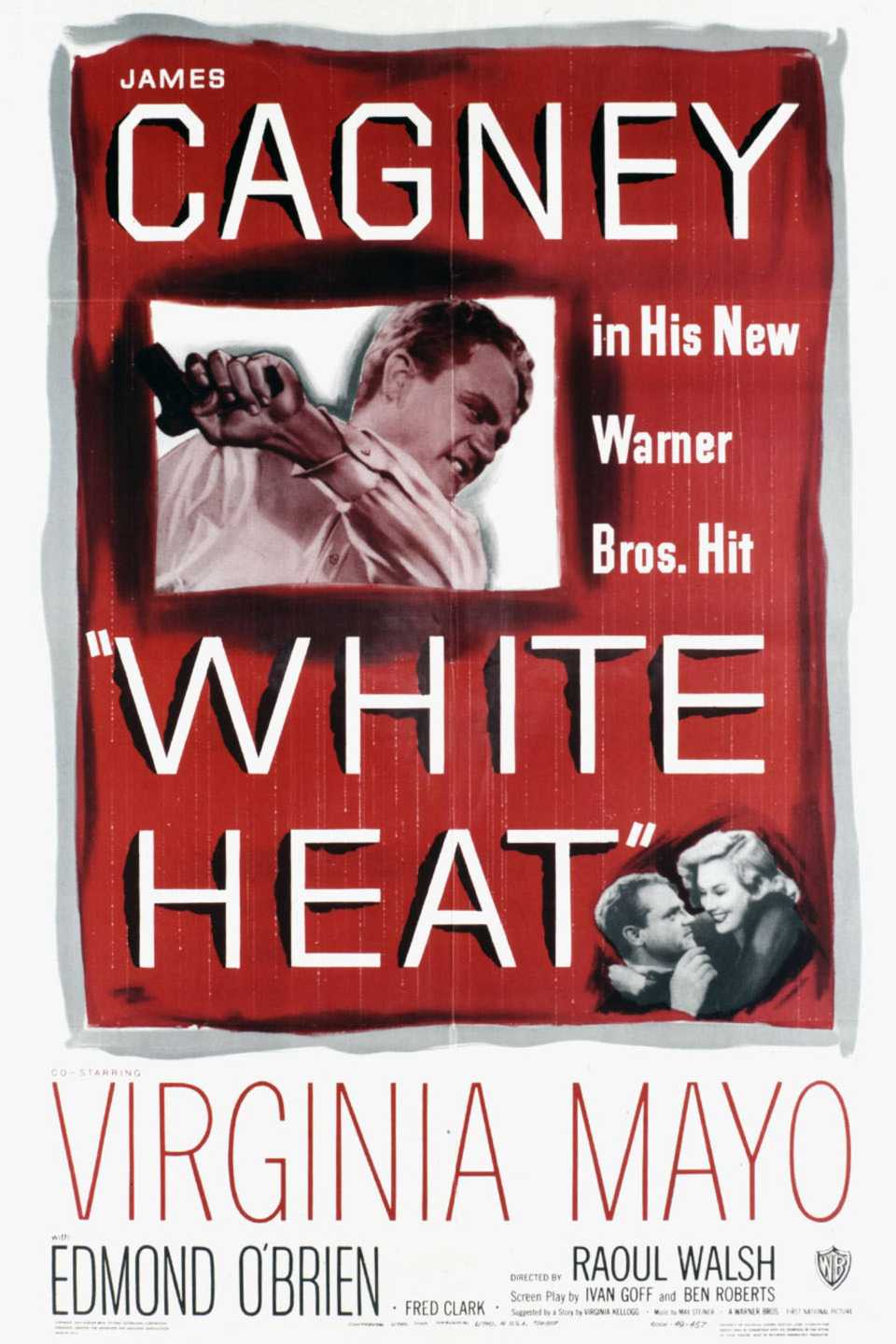
White Heat
- Release Date
-
September 3, 1949
- Runtime
-
114 Minutes
- Director
-
Raoul Walsh
- Writers
-
Ivan Goff, Ben Roberts, Virginia Kellogg

